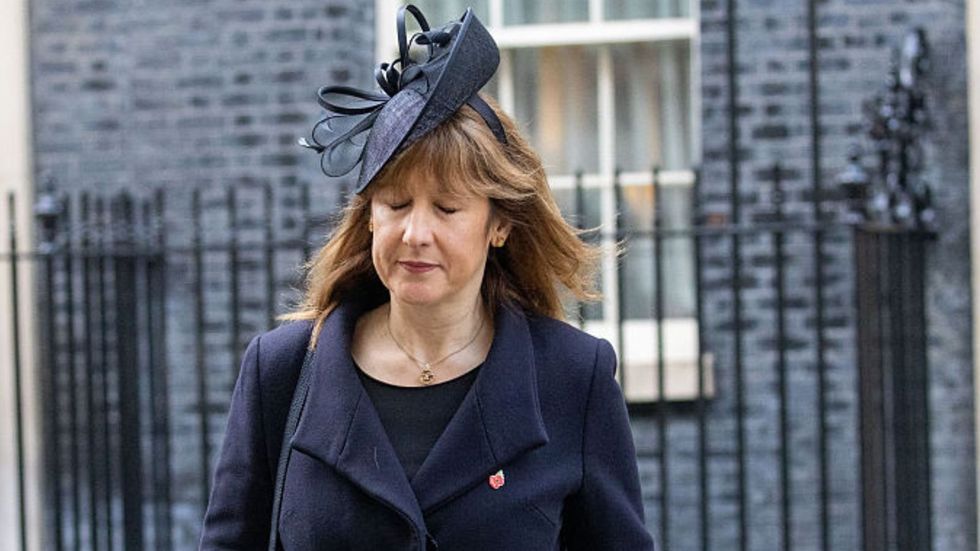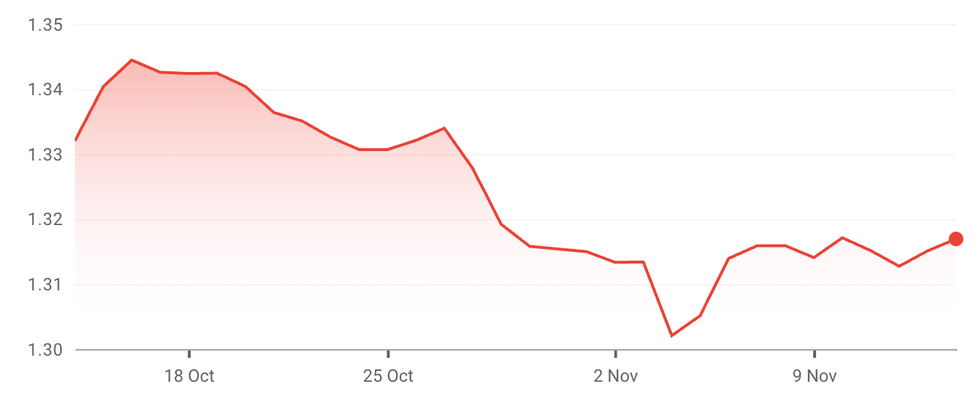Rachel Reeves’s drastic overhaul of her Budget plans has sparked renewed market volatility this morning, with Government borrowing costs surging and the pound dropping in value against major currencies.
The yield on ten-year gilts – which determines the cost of Government borrowing – increased by 13 basis points to 4.57 per cent, prompting concerns about Britain’s fiscal outlook ahead of the Budget in under two weeks time.
Meanwhile Sterling was the weakest performer among leading currencies, falling 0.3 per cent against the dollar.
The movements followed reports the Chancellor intends to abandon expected increases to income tax rates.
The apparent reversal has revived questions about how the Government plans to address what analysts describe as substantial fiscal pressures.
Market participants have begun reassessing their expectations for interest rate decisions, with implications for how the Bank of England responds in the months ahead.
Some investors said the policy uncertainty had complicated forecasts for monetary easing.
Sources familiar with internal discussions said the Chancellor had dropped proposals to raise both the basic and higher income tax bands.

Ms Reeves triggered market volatility
|
GETTY
The plans had encountered opposition within Labour ranks over concerns about breaching the party’s election commitments.
Chancellor Rachel Reeves had prepared two budget scenarios: one containing significant tax rises and another relying on more limited revenue measures.
Political pressures have pushed her towards the less expansive option, leaving officials reassessing the consequences for the Treasury’s finances.
The basic income tax rate has been unchanged since Denis Healey increased it to 35 per cent in April 1975.
Labour’s manifesto pledged not to raise this or the higher rate, creating tensions over whether any increase would conflict with those commitments.

The pound’s strength over the last month
|
The decision to abandon the proposals leaves a considerable gap in the Government’s fiscal plans.
The Treasury must now identify alternative sources of income to address a deficit approaching £35billion, with only a short window remaining before the Budget.
Cabinet discussions have highlighted divisions over potential revenue options.
Some ministers remain concerned about which measures could gain both political support and economic credibility.
Treasury officials face the task of preparing revised proposals under significant time pressure.
The retreat from income tax rises has narrowed the available choices for meeting the Government’s public finance requirements.
The Chancellor has also stepped back from introducing a proposed exit levy on wealthier individuals leaving the United Kingdom.
Plans involving limited liability partnerships have been shelved as well, adding to the Treasury’s challenge in generating replacement revenue.
Individuals close to the process said the Chancellor’s more ambitious budget outline, which included substantial tax measures, had been set aside following internal political resistance.
The remaining proposals now rely on more modest adjustments that may not deliver the same scale of funding.
These developments come during a period of wider political turbulence surrounding Prime Minister Keir Starmer’s administration.
The Chancellor’s room for manoeuvre has been reduced as she attempts to balance competing demands over public services, taxation and spending.
Cabinet agreement on any final revenue package remains uncertain.
Officials have been discussing a range of possibilities ahead of the fiscal statement, though no consensus has yet emerged.
In response to the Chancellor’s policy shifts, financial markets have modified expectations for monetary policy.

The rise in gilt yields presents further complications for the Treasury
|
Marketwatch
Traders now place roughly a 75 per cent probability on an interest rate cut by the Bank of England in December, marking a notable adjustment in sentiment.
The rise in gilt yields presents further complications for the Treasury.
Higher borrowing costs increase debt servicing expenses and could enlarge the fiscal shortfall the Chancellor must address in the upcoming Budget.
Investors are monitoring developments closely as the Budget date approaches.
The combination of policy uncertainty and deteriorating market conditions has created a challenging backdrop for the Chancellor’s remaining fiscal decisions.

